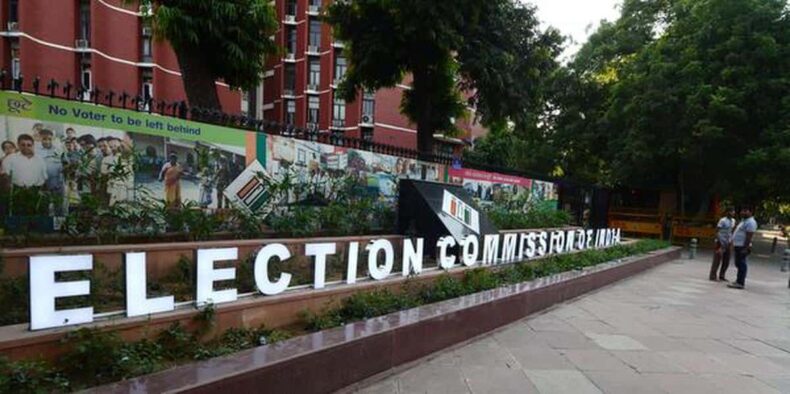In preparation for the 2024 Lok Sabha elections, the Election Commission of India (ECI) has vigorously defended the integrity of electronic voting machines (EVMs). They assert that EVMs are highly secure and resistant to tampering, thanks to a combination of technological safeguards and stringent administrative and security protocols established by the commission. In a recent submission to the Supreme Court, the ECI affirmed that unauthorized individuals are prevented from accessing EVMs and Voter-Verified Paper Audit Trails (VVPATs), thereby ensuring protection against tampering or manipulation at any stage, be it before, during, or after the elections, as well as during transportation between manufacturers, states, or districts.
The Election Commission has rejected a request for full verification of EVM data against Voter Verifiable Paper Audit Trail (VVPAT) records, asserting that this plea is just another effort to raise unfounded doubts about the reliability of EVMs and VVPATs. In response to a Public Interest Litigation (PIL) filed by the non-governmental organisation Association for Democratic Reforms, the Election Commission submitted an affidavit that argues against the need for such verification. The case is currently under consideration by a bench led by Justice Sanjiv Khanna.
In their response, the Election Commission has contended that conducting a complete manual counting of all VVPAT paper slips, as proposed, would not only be a laborious and time-consuming process but also susceptible to “human error” and potential “mischief.” The commission has gone on to argue that this approach would essentially amount to reverting to the traditional paper ballot system. They expressed concerns about the logistical challenges, the risk of inaccuracies, and the potential for spreading misleading narratives on social media due to the extended duration of manual counting across the country.
ALSO READ: Government Introduces Bill to Change Election Commission Appointments
The petitioner has not only requested a stronger system of cross-verification between EVM and VVPAT counts but has also sought a court declaration affirming that every voter has a fundamental right to confirm that their vote has been “recorded as cast” and “counted as recorded.” They are asking for court directives to ensure the enforcement of this supposed fundamental right.
However, the Election Commission has emphatically stated in its affidavit that no such fundamental right exists. Additionally, the commission has contested the petitioner’s assertion that their plea aligns with the 2013 judgment in Subramanian Swamy v. Election Commission of India. In that case, the Supreme Court had deemed the “paper trail” an essential requirement for fair elections and instructed the ECI to implement the VVPAT mechanism.
The Election Commission has highlighted that in response to a Supreme Court ruling in 2019, prompted by a plea filed by 21 opposition leaders, including former Andhra Pradesh Chief Minister N. Chandrababu Naidu, the number of random polling stations subject to mandatory verification of Paper Audit Trail (PAT) slips was increased from 1 to 5 in each assembly constituency or segment of a parliamentary constituency. The commission has informed the court that the current system of random verification of five VVPATs per assembly constituency or segment has reached a level of “near-certainty,” with this conclusion being based on the margin of sampling error calculated by the Indian Statistical Institute (ISI).
In the previous month, the bench led by Justice Khanna expressed reservations regarding the non-profit’s plea. Justice Khanna questioned Advocate Prashant Bhushan about whether the petitioner-association was perhaps being overly suspicious.
Despite facing skepticism from the bench, the counsel continued to advocate for more extensive cross-verification of electronic voting machines (EVM) data against voter-verifiable paper audit trail (VVPAT) records. He emphasized that only approximately two percent of EVMs were currently subject to cross-verification. In response, Justice Khanna pointed out practical constraints faced by the Election Commission.
In the end, the court decided not to issue notice at that stage but instructed the counsel to provide a copy of the petition to the standing counsel of the Election Commission of India before adjourning the hearing.
This week, the court reiterated its previous concern about the Association for Democratic Reforms being “overly suspicious.” Furthermore, the court stated that it was not persuaded by the urgency of the matter, especially considering the counter-affidavit submitted by the Election Commission. As a result, the court has postponed further proceedings on this issue until November.













